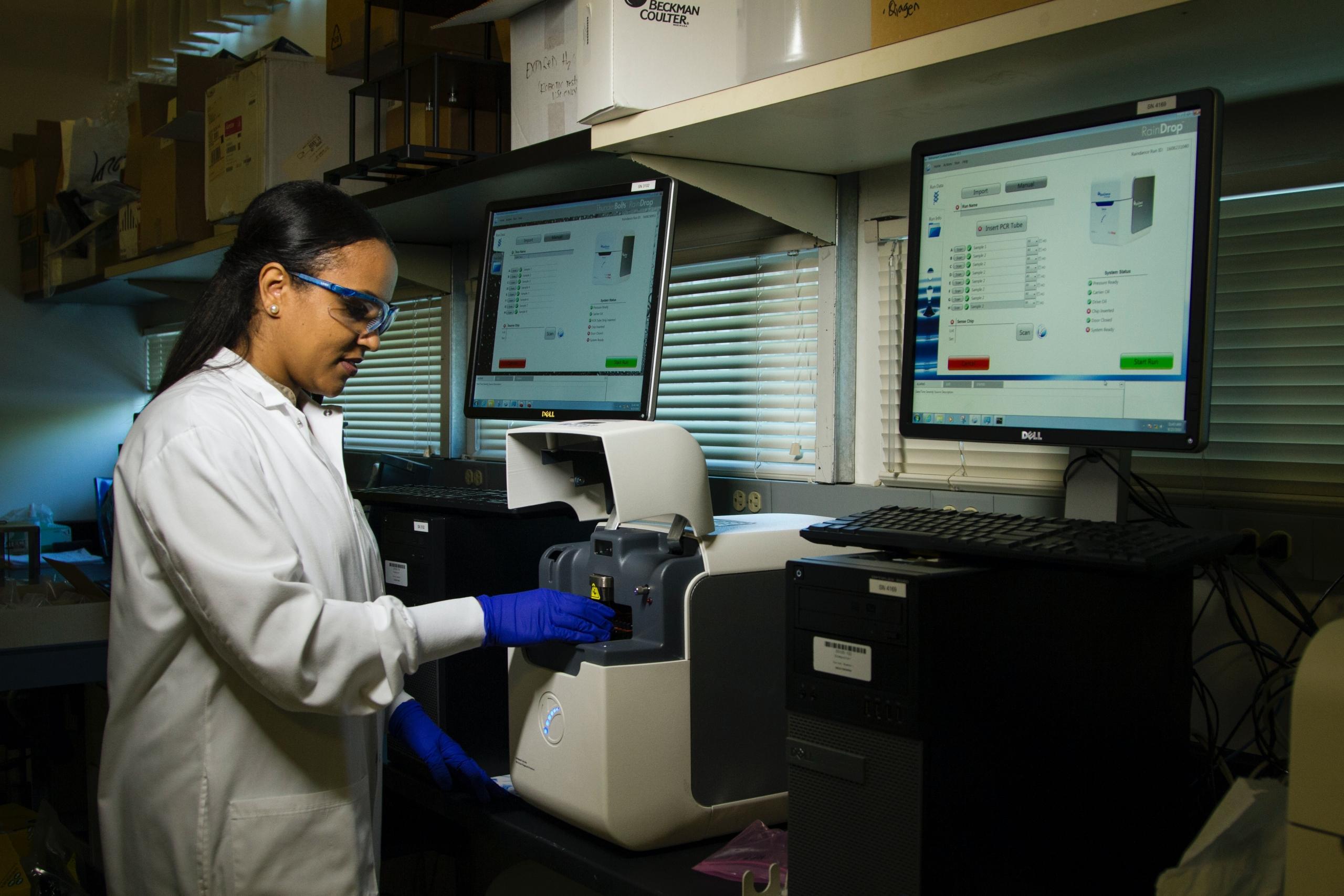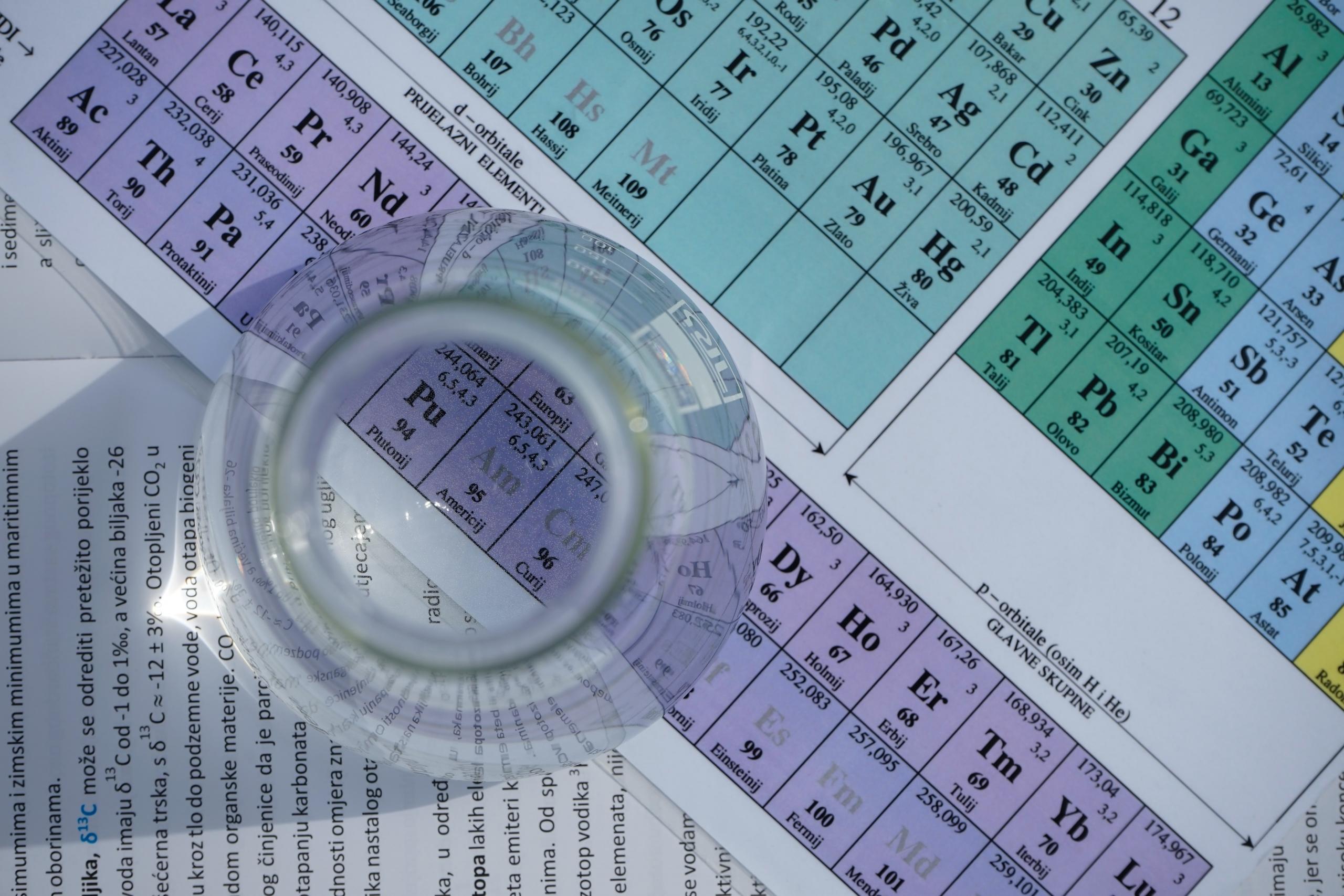In chemistry class, students learn and study about organic and inorganic substances, compounds, elements, chemical processes, living organisms, chemical properties and reactions, molecular balances at a chemical level, properties of solids, liquids and gases, chemical bonding, and much more.
In this article, you're going to learn about the top fields in chemistry, we'll also give you tips on how to search for a job, how to know which job is perfect for you, and more. You can also find more information about the subject in our article about pursuing a career in Chemistry in the United States.
This article is perfect for you if you're interested in pursuing a career in chemistry or a similar area and feel unsure if it is the right decision for you.

Top Chemistry Fields

There are different areas and fields you could go into with a degree in chemistry and below you'll find some of the most popular jobs that chemists pursue:
- Pharmacologist - if you want to be a pharmacologist you'll study and investigate how drugs interact with biological systems. These scientists also carry out research to aid drug discovery and development.
- Forensic scientist - this field of work is designed for people who are passionate about science and crime. Forensic scientists are responsible for analyzing materials (like droplets of spit, hairs, blood) found in crime scenes with chemicals and working alongside detectives to find clues and suspects.
- Biotechnologist - in this job, you will study the genetic, chemical, and physical attributes of organisms, tissues, and cells to develop new products, technologies, and processes that will address some of the biggest problems in society.
- Chemical engineering - chemical engineering is about designing and developing products from raw materials. They use their knowledge of chemical properties, compounds, and reactions to transform materials from one state to another, for example making plastic from banana peels.
- Nanotechnology - this field encompasses science, physics, chemistry, biology, engineering, and computer science. If you want to become a nanotechnologist you'll need more than a Bachelor's degree in chemistry. Nanotechnologists manipulate matter and learn to develop new materials, equipment, drugs, or diagnostic tools.
- School or university teacher - if education is your passion, you should consider working in different school programs as a chemistry teacher. You could be a high school, university, graduate, or Ph.D. teacher and work at the level you're at to help other students achieve their goals in the field.
- Analytical chemist - analytical chemists use their skills and knowledge of chemistry to analyze substances and materials. Some of these may be food, drugs, and other products consumed and used by humans and animals.
Are there any specific qualifications you need to be a chemist?
Finding a Job
Finding a job is no picnic, which is why you should prepare to apply to different programs and areas once you graduate. Chemists usually go for jobs available in famous labs and similar branches or areas.
However, you should know that there are plenty of programs available for chemists on American soil, all you have to do is search and network.
There are plenty of online platforms you can use to search for a job in your area of interest. LinkedIn is one powerful platform people use to search for a job. As an employer searching for employees, you can also add a job listing on this platform and wait for people to start applying.

LinkedIn works as a social media for our professional accomplishments, which is why you should pay attention to the information you put up in your profile. This is the place where you can show off all your amazing experiences in the field, share all the certifications, recognitions, awards you've gotten over the years, and much more.
Many headhunters are using LinkedIn too and if you prompt up your profile correctly and professionally, someone might reach out to offer a job opportunity to you. This is why you should always keep your profile up to date using real information about your trajectory and experience.
Keep in mind that there are plenty of other online platforms (besides LinkedIn) you can use to search for an opportunity in a lab or a research facility.
If, on the other hand, you are not a fan of the digital world and don't feel confident using an online platform, you can always find a job the old way. You can send your CV to your dream companies and see if they are hiring, go through agencies, or network.
Networking is most commonly underestimated but it can be a gateway to a great opportunity. Many people tend to ignore the power of networking because it involves socializing and that can be annoying at times.
However, you should try to network with faculty members, classmates, colleagues, friends, family members, and other people in your life because you never know who can have an opportunity for you or know someone.
What is the salary for different chemistry jobs?
How to Know Which Job Suits You Best?
Many people have a hard time figuring out what field or job they are most interested in. This happens because some people tend to feel self-conscious and don't have a clear idea of what their talents and passions are.
However, it is not an impossible task to figure out whether you like science courses like chemistry, physics, or biology; math, literature, or history courses.
We recommend you pay attention to the activities that bring you joy or spark curiosity in you. Did you enjoy working in a lab when you were in high school? Then you should probably pursue a career in the field of science. You could go into branches like physics, biology, chemistry, biochemistry, chemical engineering, physical studies, and much more.
Do you like history class? Then you could consider majoring in something related to international relations, journalism, history, politics, and so on. If history class is not your forte but you still enjoy learning about society, then you can pick either of the majors we mentioned and work on your history class skills.
Securing the guidance of a dedicated and experienced chemistry tutor is akin to unlocking the intricate secrets of chemical reactions, paving the way for a deeper understanding and mastery of the subject matter.

Figuring out what degree to pursue, what school department and faculty you could benefit from, and what type of working structure suits you can be challenging. However, the American education system is designed to help students figure out what path and field suit them best.
So don't stress if you don't know what you want to study, there are many processes and faculty members ready to assist you both in high school and university.
Start Somewhere
If you don't know which of the fields in chemistry you'd be good at, then you should start by trying out one field and continue moving around. You can take different courses in biology, chemistry, physics, and other branches, and work towards finding something you love.
If you start with biochemistry and decide that working with chemical processes to understand the organic and inorganic matter is not for you, then you can move to something else like engineering.
If then you discover that engineering is not your passion either, you can take classes to see if you could go into pharma. In these classes, you'll learn about chemical reactions and properties in chemistry that will help you create drugs. If you don't like this either you can go into environmental, physical, or molecular studies, and much more.
The goal is for you to find something you love and then stick with it until you can get your degree and start searching for a job. Keep in mind that your degree will help you make a living and develop your professional career, and as much as you need something you love, you should also be practical.
Find Chemistry tutoring here on Superprof.

University is just the first step into the rest of your professional life and students should take these years in university seriously if they wish to become an important asset for society in the future.
Keep in mind that it is very normal to feel pressure to choose a major that will land you plenty of jobs in the future, but you should also be practical and choose a major, program, and department that you feel passionate about. This way you won't have to work a day in your life.
Follow the link to learn about notable chemistry companies.
Embark on a journey of academic excellence with the support of a knowledgeable and accessible online chemistry tutor, breaking down barriers to learning from anywhere in the world.
Summarize with AI:















